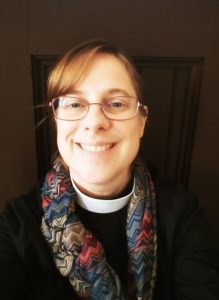From Another Mother
Thinking of you living under the same sky, and on the same earth as me, I miss you. I do not know what I should say, or how I should say it. Even though I am ashamed of myself, I want to be called your mother . . . When I had to send you away at the hospital, I reproached myself for being so powerless and irresponsible. I do not know how many times I had to bite my lip to endure the pain that was tearing at my heart. . . . I still clearly remember holding you in my arms in the hospital. Sometimes I still cry when I think of your little hands like delicate fern leaves, your small lips, your soft skin. But from now on I will be praying with gladness rather than sorrow. I will pray that you meet a bright future, brighter than the summer sun . . . I hope that you will be a very handsome, fine man wherever you are.[1]
One of my older sons, when he was still little, announced that I was, at least for the moment, a nice mommy. I cannot remember what I had done to earn this honor, but I do recall my response. “I am glad you think so,” I said. “I am the only mommy you have.” At this my youngest, who I often described back then as a 40-year-old man in a 4-year-old body, piped up with “Not me! I have two!” “Three,” I corrected him.
My youngest son is adopted. We have always tried to keep him mindful of his birth mother, whom he has not met and with whom he has no means of contact, despite our openness to communication with her. But we are blessed, through the wonders of social media, to have his foster mother in our lives, though we do not speak the same language.
We were able to meet her six years after she sent our son to us, when we returned to Korea for a visit. His most powerful memory for many years afterward was of how much his “omma” kept touching him. She hugged him or patted his head or held his hand the whole time we were with her. What he’s forgotten are her words, repeated over and over, and faithfully translated each time, “I never thought I would see him again.”
My son’s foster mother cared for him for ten months, through two hospitalizations. She never stopped worrying about his health and, on the rare occasion when she could write to us, she always wanted to be reassured that he was healthy and growing well. When he started playing soccer, I made sure to take a few good action photos to post on my social media, tagging his foster family so they could see that he was just fine. She probably still worries about his health, and I hope for her to see him again one more time before he is grown.
My son’s first mother carried him for almost nine months, but she has no such assurances. Because of cultural pressures in Korea that place more importance on bloodlines, especially for boys, and make having or being a child outside of marriage an extreme social handicap, she has chosen not to have any contact with our family. We would welcome her, of course, and when he was smaller, I wrote from time to time, the adoption agency having assured me that my letters would be kept on file for her, should she ever request information. To my knowledge, she has never done so. It is likely that she wants to leave him to grow up in peace, and she may have married and had other children for whom she would want the same peace and family stability. She no doubt hopes he has grown to be a handsome, fine man, but she has no way of knowing that he has.
Every year on Mother’s Day, I cannot help but be reminded that my youngest son has two other mothers. I am the one who received the clumsily strung beads, the handmade cards, and the moderately identifiable craft projects. I am the one for whom he now insists on making a special meal or dessert. (Oh, how I wish his first mother could know what a phenomenal cook this young man is!) But I am not the only one who stayed up nights with him when he was a baby, who worries over and prays for him today. Half a world away, two other women share those joys.
Mother’s Day is a sweet time for women like me. My mother is alive and well (and will be spending the day with us this year). And my children are all healthy and nearby. For others, Mother’s Day is more painful; for some it is a secret grief. I began with a quote from I Wish for You a Beautiful Life, a book of letters from Korean birth-mothers to the children they were not likely to see again. These letters never fail to bring tears. They are a window to a world I will never have to face, one that a far-off stranger, who shares the name of mother to my son, knows all too well. The words above are not her words to him, but they could have been.
This year, Mother’s Day is celebrated on the same day in the United States as it is in Korea. My wish for my son’s first mother is that her day be filled with the peace that comes from being loved—even from the other side of the world—and from believing (I hope) that the baby she sent away is indeed becoming a handsome, fine man.
___________________________
[1] Author unknown. I Wish for You a Beautiful Life. Letter 42. St. Paul MN: Yeong and Yeong Book Company, 1999.










